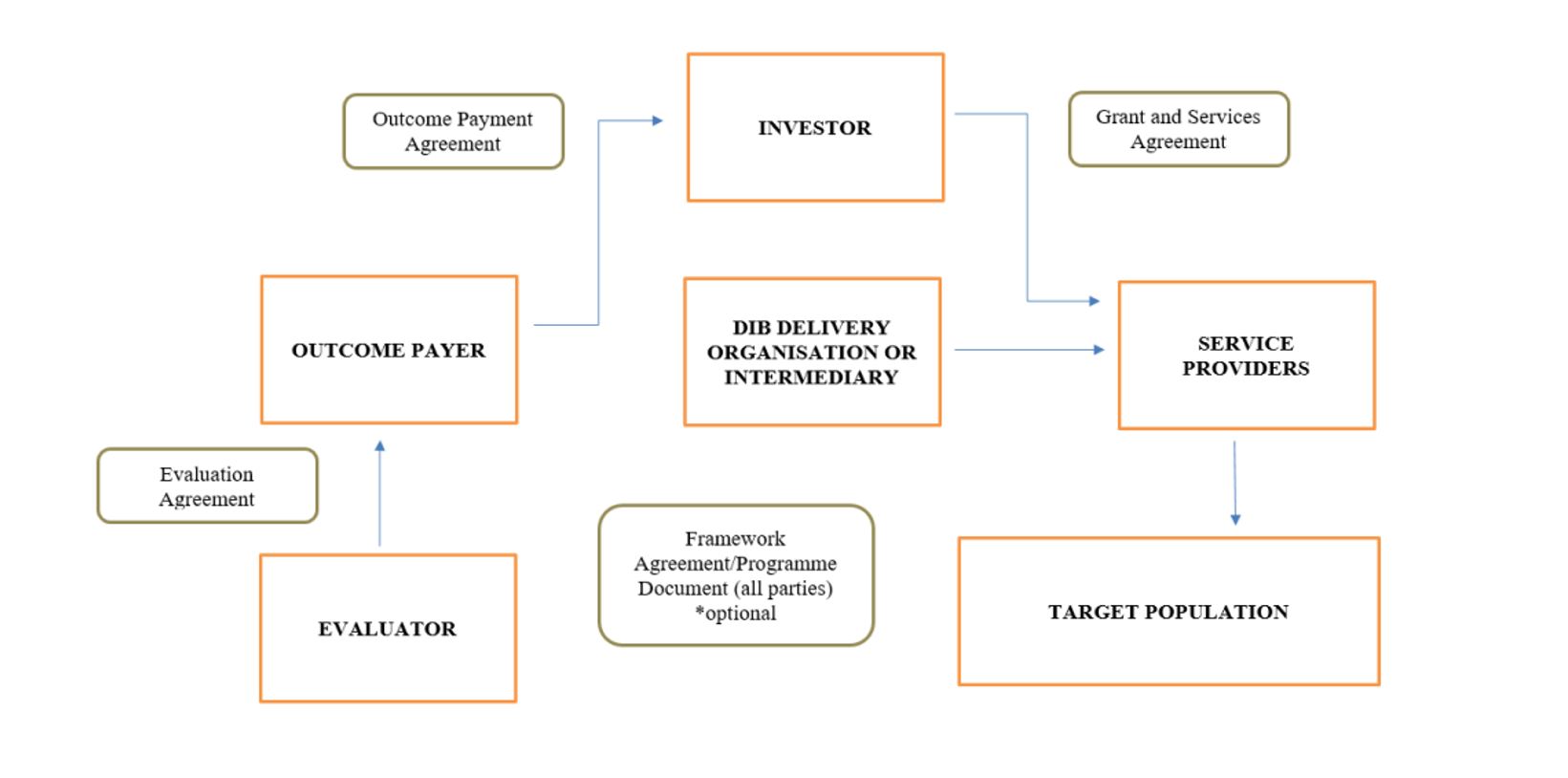The Coronavirus (COVID-19) pandemic continues to disrupt communities and businesses around the world. This unprecedented crisis has also focused major scrutiny on force majeure (FM) clauses in contracts, as parties struggle to perform their contractual obligations amid ongoing disruption. This is especially true for the social impact sector, where COVID-19 has severely disrupted several “pay for performance” instruments.
We often hear the term “patient capital” when it comes to impact finance investments, and COVID-19 has tested how “patient” invested social impact capital really is. The current crisis has tested not only the letter of FM clauses but also the spirit of the contract.
This article analyses FM clauses used in development impact bond (DIB) contracts and considers the steps being taken to adapt to the ongoing crisis. This analysis is largely provided in accordance with English law and should be considered accordingly.
IN DEPTH
The aim of including FM clauses in DIB contracts is to allow parties within a contractual framework to:
- Hold the transaction “together” during times of crisis, rather than trigger termination (which is a particular feature of DIB contracts)
- Invoke a governance process to analyse the impact of an FM event and agree steps to adjust the project in order to resolve any critical issues
- Ultimately, if a solution cannot be reached because of the extent of disruption to the project, to agree a way in which the project can be restructured or, as a last resort, terminated (as appropriate).

The graphic above illustrates a basic structure of a “pay for performance” financial arrangement that is used in what is typically referred to as a DIB. Under this structure:
- An outcomes contract is negotiated pursuant to which the outcome payer agrees to pay for certain social outcomes for a target population.
- Service providers receive funds and agree to deliver services to address the social issue for a target population.
- Based on the outcomes contract, the DIB delivery organisation raises funds from investors, who provide upfront capital for the social intervention with the expectation that, if the outcomes specified in the outcomes contract are met, the investors will be repaid and also receive a “success” or “outcome” fee.
- Outcomes are evaluated or validated by an independent evaluator.
A key feature of a “pay for performance” instrument is that the outcome payer is only required to pay back the investors if the outcomes are achieved. Hence, any significant disruption to the implementation plan of the underlying project due to an external event, such as a global pandemic, could have an adverse impact on the overall results or outcomes achieved and therefore also on the amounts to be paid to investors.
What Is Force Majeure?
There is no standard definition of FM. FM clauses are often developed to respond to the context of the transaction. However, FM can be generally defined as “an exceptional or supervening event or circumstance beyond the reasonable control of the parties that prevents (or delays, obstructs or hinders, which are lower standards) a party from performing its obligations and which could not reasonably have been provided against, avoided or overcome”.
Contracting parties typically supplement the definition of FM by expressly including a non-exhaustive list of events that the parties agree are FM events (if the prescribed tests are met), which may expressly include “epidemic” or “pandemic”. However, even if an “epidemic” or “pandemic” is not expressly included, a party may be able to claim that these are FM events under other heads, such as “events beyond the reasonable control of the claiming party”, “government action”, “quarantine”, “emergency” or “shut down”.
In certain categories of projects, such as healthcare and prisons, there may be public policy reasons for deliberately and expressly excluding “epidemic” and “pandemic” from the FM events. In such circumstances, it may be prudent to provide for recovery plans and other supervening events.
If an FM event occurs, a party is given an agreed period of time during which it is protected from its failure to perform its obligations under the contract. However, a party cannot automatically claim FM relief; the claiming party would need to establish causation between the FM event and the non-performance or breach of its obligations and thereafter follow the prescribed process to claim FM relief under the contract.
A party seeking to rely upon an FM provision will usually be required to show 1) that it has taken reasonable steps to avoid or mitigate the event and its consequences, and 2) that there are no alternative means for performing under the contract. What constitutes a reasonable mitigation measure in the circumstances will depend upon the nature of the contract in question and the surrounding facts. Generally, an event that makes a contract more expensive or onerous to perform, such as an economic crisis or a change in the market or economic conditions, or an obligation to pay, is unlikely to qualify as an FM event.
FM and Frustration of Purpose: Why Include FM Clauses in DIB Contracts?
English law does not recognise FM as a matter of statutory law, unlike some civil law jurisdictions. To claim FM under an English law contract, the contract should expressly include an FM clause. If a contract does not include an FM clause, the common law doctrine of “frustration” may apply.
Briefly, a “frustrating event” is an event which:
- Occurs after the contract has been formed
- Is so fundamental as to be regarded by the law both as striking at the root of the contract and as entirely beyond what was contemplated by the parties when they entered the contract
- Is not due to the fault of either party
- Makes further performance impossible or illegal, or makes it radically different from that contemplated by the parties at the time of entering into the contract.
Under English law, frustration generally only applies in extreme scenarios and then for a very narrow set of events.
An event that deprives a party of its expected benefits under a contract is generally not sufficient to claim that the contract has been frustrated.
The COVID-19 outbreak is very unlikely in its own right to be found to be a frustrating event; it is far more likely to be a question of whether governmental measures taken to deal with COVID-19 have frustrated a contract. Worldwide governmental actions taken during the COVID-19 pandemic are unprecedented, so it is unclear how English law will treat various claims of frustration. It is not possible to generalise about the merits of any claim for frustration due to the consequences of COVID-19, and each case would need to be judged on specific matters of fact. The English courts likely will draw a distinction between (1) conduct which has been expressly prohibited by law (such as a government requiring the closure of specific industries) and 2) conduct which the government only recommends or advises should not take place (e.g., a recommendation that an industry operate in a particular way).
Consequences of Frustration
In the absence of FM clauses, there is the added and higher risk of a contract being frustrated. The consequences of frustration are set out in the Law Reform (Frustrated Contracts) Act 1943 (LRA), which generally applies to commercial contracts with a few exceptions. The LRA:
- Permits recovery of money paid before the frustrating event
- Does not permit recovery of money due before the frustrating event, but not in fact paid
- Subject to an allowance, at the court’s discretion, permits recovery of expenses incurred before the frustrating event
- Requires a party who has gained a valuable benefit under the contract before the frustrating event to pay a “just” sum for it.
This may not be the intention of the parties, who may prefer that the contract itself lays down a road map for dealing with such events.
If the parties have made express provision for the consequences of a particular event, such as an FM clause to deal with an event, then the contracts governed by English law are held not to be frustrated. This also provides greater clarity and certainty to the parties.
How Are FM Clauses Used in DIBs?
Below is a typical definition of an FM event used in a DIB contract:
“Force Majeure Event” means any cause materially affecting the performance by a Party of its obligations under this Agreement or the viability of the Project as contemplated by the Project Documents arising from any act, event, omission, happening or non-happening beyond its control including, without limitation, acts of God, strikes, lock-outs or other industrial disputes, war, riot, flood, political upheaval or any disaster.
Who Calls an FM in a DIB, and What Happens Next?
Under DIB documentation, following the occurrence of an FM event, the “affected party” is usually required to notify the other parties (usually the key stakeholders in the pay for performance structure) as soon as practicable. The notification requires that relevant details are included about the FM event, including evidence of its effect on the obligations of such affected party and what, if any, actions are proposed to mitigate its effect (often called an FM event notice).
As soon as practicable after the service of an FM event notice, the governance mechanics under the DIB structure are triggered and usually require the members of the main governance body or steering committee to consult with each other in good faith and use all reasonable endeavours to agree appropriate terms to mitigate the effects of the FM event and facilitate the continued performance of the project. The parties to the steering committee can vary, but they typically include the main stakeholders in a DIB transaction, namely, the outcome payer, the investor(s), the DIB delivery organisation and the service providers (if applicable).
If no such terms are agreed by the steering committee within a specified timeframe (usually 60 to 90 days) and such FM event is continuing or its consequence remains such that the affected party is unable to comply with its obligations under the relevant documents to which it is a party, then the steering committee at that stage could decide to unanimously terminate the project.
Extensions and Waivers
As the ongoing disruption due to COVID-19 impedes implementation of various projects, a number of processes are being undertaken where relief is provided to the affected party by amending or waiving provisions in the underlying contracts. Such relief depends on the wording in the underlying contract and whether parties are agreeable to amendments to provide additional staggered reliefs, which typically include:
- Grant extensions of time for the performance of the contract
- Financial support for the claiming party during a specified period (within limits)
- A requirement for parties to discuss and agree in good faith any alternative measures and methods that could be used to comply with or perform the contract without affecting the economic balance or equilibrium of the contractual rights of the key stakeholders
- Parties agreeing a final date for continuation of the FM event beyond which any party would be entitled to terminate the contract
- A requirement that the claiming party resume performance as soon as the FM event ceases to prevent it from performing its obligations.
Negotiation around these options depends heavily on whether the relevant party is an investor, an outcome payer, a service provider or an evaluator. While the nature of DIB documents requires the various parties to a transaction to act “in partnership,” the commercial impact due to an FM event may not necessarily be aligned.
For example, in “blended capital” structures where investor funds may include both philanthropic grants and “return first” capital from private sector funding, philanthropic funds tend to take a much more “patient” or long-term view in relation to the impact of the disruption. In contrast, private sector funds would have a short-term outlook to such disruption and would expect to come to the table to mitigate against it as quickly as possible so that the project returns to being a viable source of return. Hence, possible tensions among impact investors may need to be aligned during the extension, waiver or restructuring process.
The interests of other parties to the DIB documents also may not be fully aligned. For example, an outcome payer may not be adversely affected in the short term by an FM event, as it is only required to pay out funds to the relevant parties once the outcomes are achieved. In contrast, a service provider’s ability to deliver on the outcomes may be severely impeded by an FM event. This in turn could have adverse reputational and financial consequences for the service provider. Therefore, part of the process is to analyse the impact on the documentation from the perspective of the party concerned.
Conclusion
The parties to a DIB may need to take a fresh look at their contracts and in particular any FM, governance and relief provisions. COVID-19 has caused a substantial disruption in the ongoing performance of contracts for all parties, and it is important to learn from this situation.
There is also a strong case for further harmonisation of the drafting of FM clauses in DIB documentation so that a more consistent approach can be taken upon the occurrence of FM events. This would be an important development from a standardisation and consistency perspective and would assist in the interpretation of these clauses and related definitions of an FM event, which is something that the COVID-19 crisis has clearly brought under the legal scanner.




 />i
/>i

